Seal studies reveal secret life
- Published
Researcher Ben Burville on his project to discover the secret world of grey seals.
It's a cold, grey morning as we set off for the Farne Islands.
Located just off the coast of Northumberland, in the north of England, they are a haven for wildlife - especially grey seals. There are estimated to be 5,000 of them living here.
Our boat approaches one of islands and it is covered in the marine mammals; some lulling about on the rocks, others playing in the shallows.
"Grey seals spend about a third of their time hauled out and about two-thirds of their time at sea. And most of the research that's been done has been on their behaviour on the land," says Ben Burville, who has been diving with seals for years.
Now, working with the University of Newcastle, he has launched Project Grypus, external. He is attempting to capture seal behaviour on camera that's never been seen before.
And I'm joining him for an icy dip to see the animals up close.
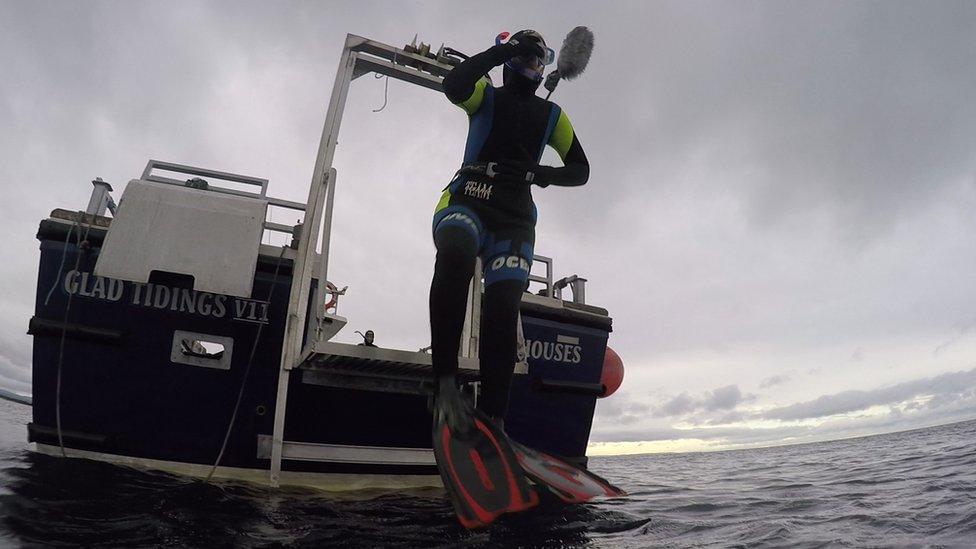
To study seals up close, the only option is to join them in the chilly North Sea
Wetsuit and flippers donned, and snorkel at the ready, I plunge into the North Sea.
The shock of the cold is piercing, but is soon forgotten as the seals start to emerge from the gloom of the water.
So cumbersome on land, they are fast and sleek beneath the waves. Dozens of the animals surround us as they twist and turn in the water.
They seem as interested in us as we are in them.
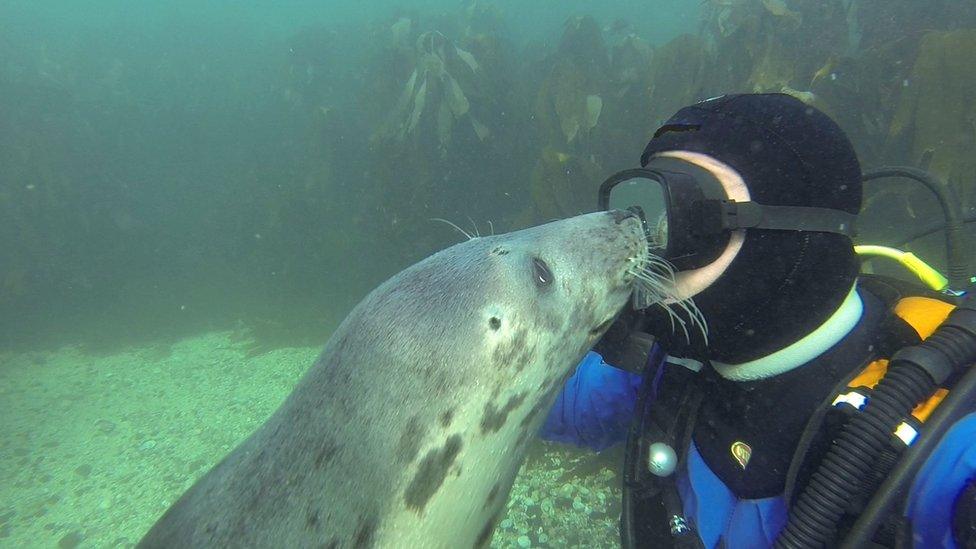
Ben Burville has been diving with seals for years
"Most of the really interesting behaviour you see is underwater in their natural environment," says Burville.
"What we're seeing is quite a lot mating behaviour actually underwater, down to depths of eight metres. It happens a lot more than people think.
"There's also quite a lot of bull seal activity, where they will - for want of a better term - wrestle with each other, pushing with each other. They're competing perhaps for their hierarchical position so they don't have to fight on the land."
He's also recorded the animals dining on jellyfish and taking a submerged nap among the thick strands of kelp. He has also spotted the seals performing a bizarre move where they swim upside down, scraping their backs along the seabed.
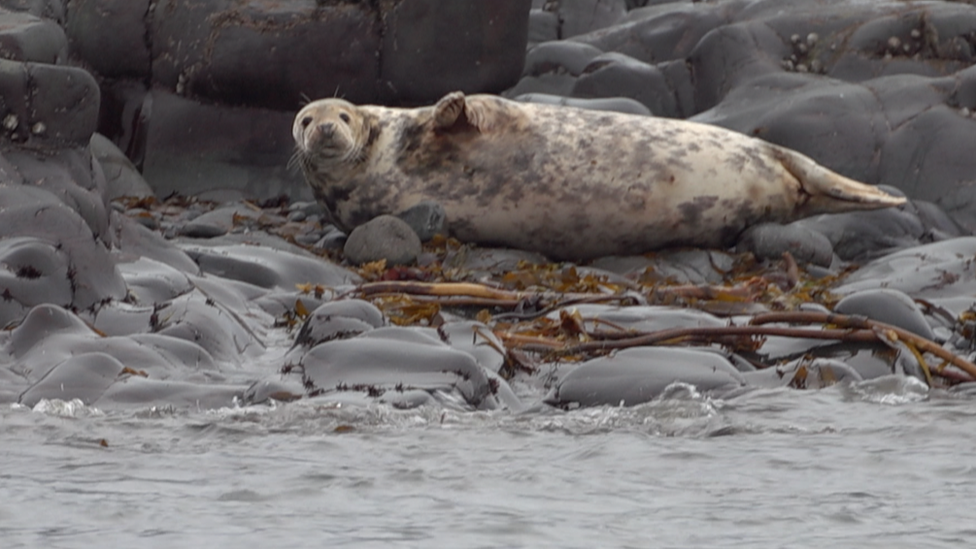
The team is also studying seal vocalisations, matching their calls to their behaviour
The noises the animals make are also an important focus for this project.
And as we take a break between dives, the ghostly call of the animals carries on the wind.
"It almost sounds like crying babies - but it's the mothers calling to their pups," , says Per Berggren, a marine ecologist at Newcastle University who is working with Burville and the National Trust to study the Farne Island's seals.
"The mothers establish a vocal bond so the pups know where they are."
He's using a hydrophone to record the animals underwater and matching the vocalisations to the different types of behaviour captured by on film.
"We have recorded big males here that exhibit very specific vocal behaviours. And we believe this is possibly a way the males are competing with each other, and it is really showing how strong they are.
"They obviously compete for access to females, and it's possible that they use this non-confrontational way of competing by vocalising.
He added: "This is a relatively new field: previously people had mainly studied the sounds above water, so we are trying to get a better understanding of this here on the Farne Islands."
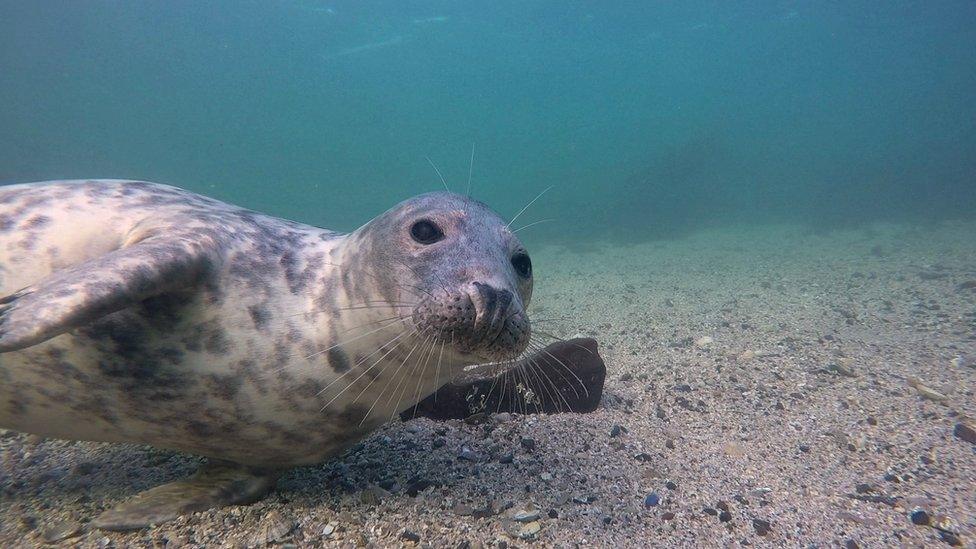
The team wants to find out what female seals do underwater when they leaves their pups on land
It's estimated that 40% of the world's grey seals live around the UK coast, and the Farne Islands have an important colony.
The animals were once culled there as recently as the 1980s, but now their numbers have bounced back.
And his time of year is a peak season for the animals. On the islands, just-born pups, fluffy and white, stand out against the dark rocks, and the adults are beginning to mate again.
But a higher than expected number of baby seals are dying.
One theory is that the pup's mothers are leaving them alone for too long. The team hopes that revealing what the mothers get up to when they are underwater, away from their babies, will explain why this is happening.
"We have seen a very high pup mortality on the Farne Islands and we want to see what's going on," says Berggren.
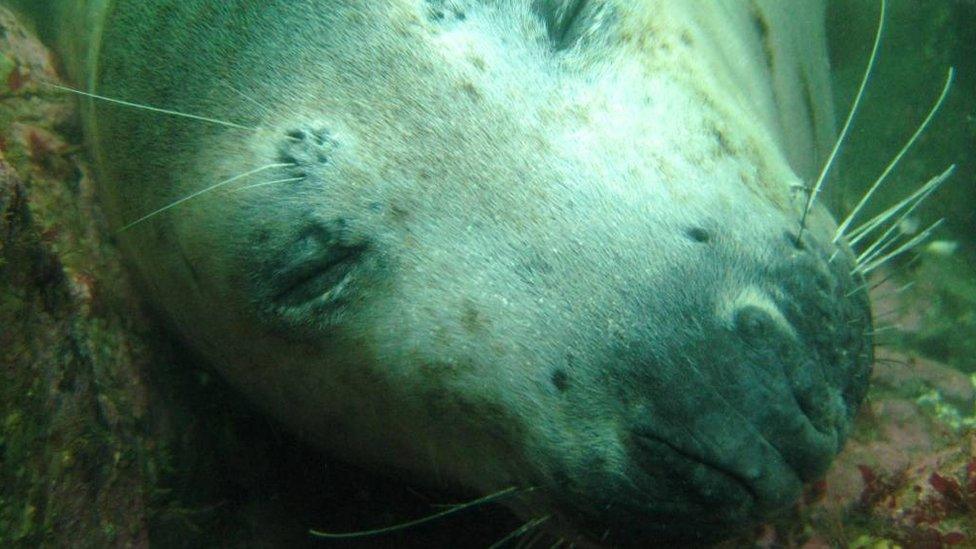
The project has recorded seals
As the light fades and temperature starts to dip, we head back into the water for one last dive.
It really does feel like you are getting a glimpse into a hidden underwater world.
And it's this that keeps Ben Burville swimming with seals - whatever the weather.
"These are such gentle animals, that are intelligent, and actually enjoy being close to you and will choose to at times interact with you.
"And that's quite a magical experience."
Follow Rebecca on Twitter: @BBCMorelle, external